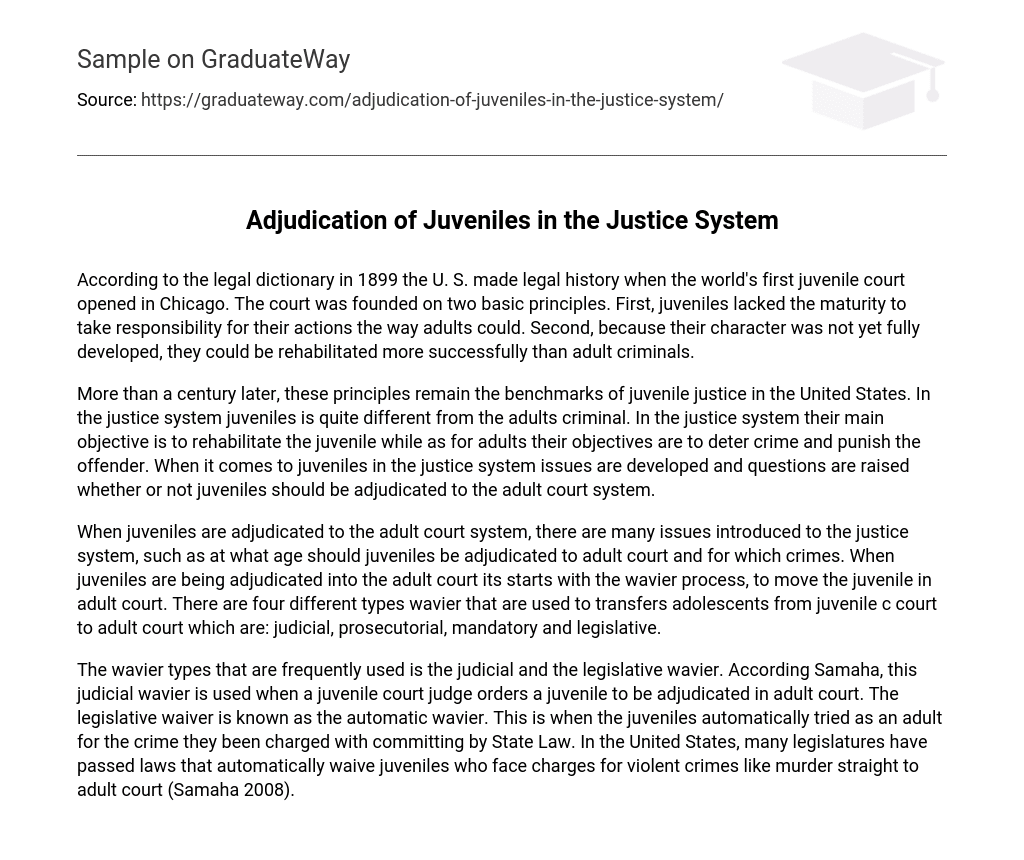According to the legal dictionary in 1899, the United States achieved a legal milestone with the opening of the world’s first juvenile court in Chicago. This court was established based on two fundamental principles: acknowledging that juveniles did not possess the same level of maturity as adults and therefore should not be held fully accountable for their actions, and recognizing that juveniles had a higher chance of successful rehabilitation compared to adult offenders due to their character still being in development.
Even after more than a century, these principles continue to be the guidelines for juvenile justice in the United States. Nevertheless, juveniles are treated distinctively from adult criminals within the justice system. The main objective for juveniles is rehabilitation, whereas deterrence and punishment prevail for adults. As a result, there are continuous discussions concerning whether juveniles should face trials in adult courts.
The justice system faces various concerns when it comes to the adjudication of juveniles in adult court. A specific concern is deciding at what age and for which types of crimes should juveniles be tried as adults. The process of moving juveniles from juvenile court to adult court starts with the wavier process, which allows their transfer. There are four types of waivers – judicial, prosecutorial, mandatory, and legislative – that are used to move adolescents to adult court.
There are two main types of waivers commonly used in the United States: the judicial waiver and the legislative waiver. The judicial waiver occurs when a juvenile court judge decides to transfer a juvenile to adult court for adjudication, as stated by Samaha. On the other hand, the legislative waiver, also known as the automatic waiver, refers to cases where juveniles are automatically tried as adults for their accused crime, according to State Law. It is important to note that several legislatures in the United States have enacted laws that mandate direct transfer of juveniles facing charges for serious offenses such as murder to adult court (Samaha, 2008).





